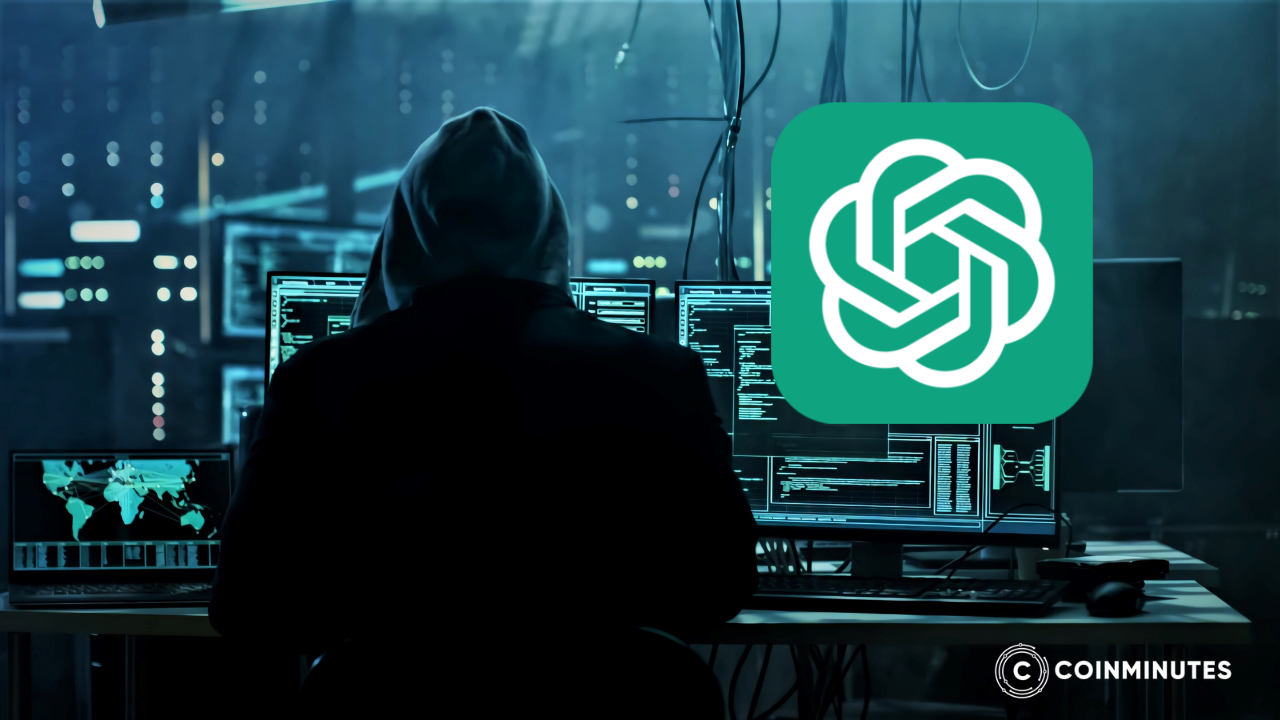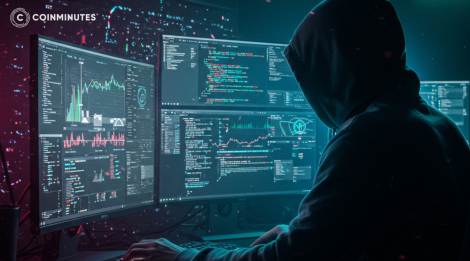North Korean Hackers Automate Crypto Theft Using ChatGPT

Your wallet security just became obsolete.
In a shocking evolution of cybercrime tactics, North Korea's elite hacking units have begun using ChatGPT to automate cryptocurrency theft. This development, uncovered by South Korean cybersecurity officials, marks a frightening new chapter in the battle to protect digital assets. These aren't just isolated incidents or experimental attempts
Is your crypto protected against AI-powered attacks?
The Automated Theft Machine: How Hackers Weaponized ChatGPT
They're not just writing better phishing emails.
They've created autonomous theft systems that never sleep.
According to a bombshell investigation by Korea's Internet & Security Agency (KISA), North Korean hackers have programmed AI-generated scripts to monitor victim wallets and automatically transfer funds when balances reach $200. This innovation eliminates human bottlenecks, enabling theft at industrial scale.
Think of your crypto wallet as a house with an invisible burglar inside. It waits patiently until you've deposited enough money. Then—while you're sleeping or away—it silently transfers your funds through a complex maze of addresses.
No warnings. No unusual login attempts. Just empty wallets.
"These aren't amateur scripts," explains Marcus Wong, security researcher at CipherTrace. "The operators leveraged ChatGPT to create sophisticated monitoring systems that track balances across different blockchains and execute complex transactions without human intervention."
The investigation analyzed 39 seized server images that revealed a progression of learning. Early logs showed basic cryptocurrency questions. Later interactions demonstrated increasingly sophisticated technical requests.
The AI doesn't just execute code—it improves it. Each interaction refined their techniques, with ChatGPT simultaneously teaching hackers about blockchain vulnerabilities while helping build tools to exploit them.
And your traditional security measures likely can't detect it.
North Korea's Crypto Obsession: From Amateur Theft to AI Automation
North Korea didn't stumble into cryptocurrency crime.
They've methodically perfected it.
Cut off from global banking by international sanctions, the isolated regime recognized digital assets as their financial salvation—a way to fund weapons programs despite economic isolation.
Their evolution tells a story of increasing sophistication:
-
2017: Basic exchange attacks against Bithumb yielded a modest $7 million.
-
2018-2019: Spear-phishing campaigns targeting exchange employees netted hundreds of millions.
-
2019-2021: The Lazarus Group distributed fake trading applications through their "AppleJeus" operation.
-
2023-2025: AI automation now scales their operations beyond human capabilities.
"This isn't random criminality," notes former FBI cybercrime investigator Rachel Chen. "It's a coordinated economic strategy run by a government facing existential financial pressure."
UN security experts estimate North Korean hackers stole over $3 billion in cryptocurrency between 2017 and 2024. Those funds directly finance nuclear and missile development programs.
Yet what we've seen so far may be just the beginning.
Kimsuky vs. Andariel: The Two-Headed Cyber Dragon
The investigation uncovered two distinct North Korean units operating with different objectives but shared technology.
Kimsuky targets your money.
This financially-focused group penetrated a South Korean crypto community with approximately one million members. They harvested user data to fuel targeted phishing campaigns with devastating efficiency.
"They don't just compromise systems," explains Lee Seul-gi, who led the KISA investigation. "They exploit human trust within established communities."
Meanwhile, Andariel hunts for military intelligence.
This separation of duties reveals a sophisticated organizational structure. Both groups used nearly identical AI infrastructure, suggesting centralized technology development serving specialized operational teams.
But here's what should concern you most: the cross-contamination of techniques.
Military-grade evasion methods now protect financial crimes. And monetization techniques first developed for crypto theft now fund espionage operations.
Your crypto isn't just targeted by criminals—it's in the crosshairs of a military operation with national backing.
The Ethical Blindspot: When AI Becomes an Accomplice
OpenAI didn't build ChatGPT to steal your Bitcoin.
Yet that's exactly what's happening.
The North Korean operation highlights what security experts call the "dual-use dilemma" of large language models. The same capabilities that help legitimate developers—code generation, problem-solving, pattern recognition—become powerful weapons in the wrong hands.
"This isn't fundamentally a technology problem," argues Dr. Eliza Montgomery, AI ethics researcher at Stanford. "It's a usage problem. These models don't distinguish between helping someone build a security tool or a hacking tool."
OpenAI has taken some action. In June, they banned accounts linked to North Korean operatives, including those using AI tools to secure fraudulent remote IT jobs—another regime revenue stream.
But banning accounts accomplishes little.
New identities can be created through proxies, VPNs, and stolen credentials faster than they can be detected and shut down.
This raises profound questions about AI governance. Should language models restrict certain types of code generation? Can they effectively identify malicious requests? Who bears responsibility when AI facilitates theft?
The answers remain elusive. Meanwhile, your crypto remains vulnerable.
Your Defense Playbook: Protecting Against Invisible Threats
Blockchain intelligence firms have begun deploying counter-AI systems. Companies like Chainalysis and Elliptic now use machine learning to identify transaction patterns characteristic of North Korean operations.
"We're fighting algorithms with algorithms," says Sarah Harrington, Chief Security Officer at a major cryptocurrency exchange. "Our systems now detect the behavioral signatures of automated theft, including the timing patterns that reveal bot-driven transactions."
For your personal protection, experts recommend a multi-layered approach:
Hardware wallets with physical confirmation requirements create an "air gap" that automated systems cannot bridge. The malware can't press physical buttons.
Transaction monitoring services alert you to suspicious movements before funds disappear permanently.
Multi-signature requirements force attackers to compromise multiple devices, complicating automated theft attempts.
Regular security audits can identify monitoring malware before it triggers theft.
"Physical separation remains your strongest defense," emphasizes Wong. "No software, no matter how sophisticated, can bypass hardware security that requires human interaction."
But is this cat-and-mouse game sustainable? Or are we witnessing the beginning of an endless security arms race?
Beyond Cryptocurrency: The Coming AI Security Wars
We've only seen the opening moves of a much longer game.
As defensive measures improve, North Korean operators will adapt. Security researchers anticipate several concerning developments:
Adversarial machine learning could help attackers evade AI-powered security systems by learning how to generate transactions that don't trigger alerts.
Multimodal AI might enable frighteningly realistic social engineering attacks combining text, voice, and eventually video impersonation.
AI-driven vulnerability discovery could identify blockchain weaknesses faster than human defenders can patch them.
"What we're witnessing is the militarization of artificial intelligence in finance," warns Chen. "Today it's ChatGPT stealing crypto. Tomorrow it could be more powerful models attacking core banking infrastructure."
And North Korea isn't the only player taking notes.
Other nation-states and criminal organizations are studying these techniques, preparing their own variants. Once pioneered, these methods rapidly proliferate.
For the crypto industry, the stakes extend beyond individual losses. Public confidence in digital asset security directly impacts adoption and value. If users believe their holdings are perpetually vulnerable, the entire ecosystem suffers.
Meeting this challenge will require unprecedented collaboration between technology companies, security researchers, exchanges, and government agencies—bridging divides that have traditionally separated these groups.
This isn't just about protecting your Bitcoin. It's about establishing guardrails for AI development before these techniques target even more critical systems.
The question isn't whether AI will transform cybersecurity—that's already happening before our eyes.
It's whether defenders can move quickly enough to protect your digital assets from attackers with nation-state resources and increasingly sophisticated AI tools at their disposal.
Your financial future may depend on the answer.
 English
English
 Vietnamese
Vietnamese











